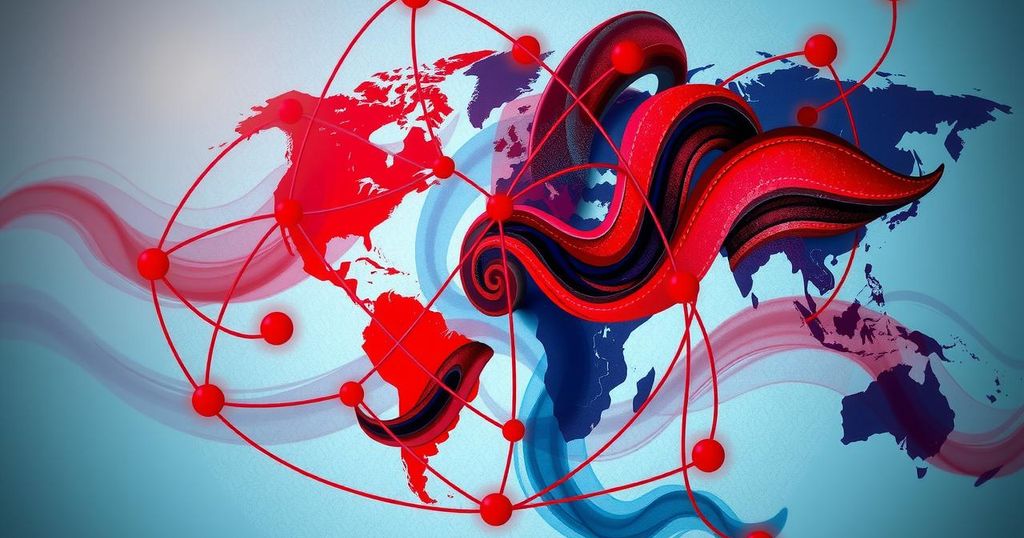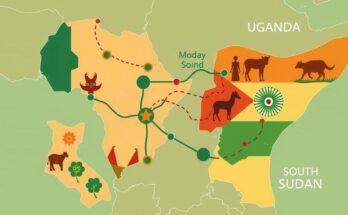Iran and Azerbaijan’s relationship is fraught with tension, primarily due to Baku’s increasing ties with Israel. High-level discussions have taken place, highlighting Iran’s concerns over Israeli influence and Azerbaijan’s alleged collaboration with foreign intelligence. Accusations of terrorism and propaganda further exacerbate the existing distrust, all while Azerbaijan strengthens its economic relationship with Israel, particularly in energy cooperation.
Iran and Azerbaijan are experiencing heightened tensions over Baku’s burgeoning relationship with Israel. During a recent meeting in Tehran, Kamal Kharrazi, a senior Iranian official, expressed Iran’s concerns regarding Israel’s increasing influence in Azerbaijan. He advised that countries should consider their neighbors’ sensitivities, as reported by Azerbaijan’s embassy.
This diplomatic friction reflects the deeper historical rivalry between the two nations. Iran has consistently criticized Azerbaijan for its cooperation with Israel, while Azerbaijan retaliates by accusing Iran of promoting inflammatory rhetoric through its clerics and media. Azerbaijani President Ilham Aliyev dismissed recent accusations from Iranian officials as unfounded political provocations.
Tensions escalated significantly when Azerbaijan’s Ministry of Foreign Affairs summoned Iran’s representative in Baku to address alleged anti-Azerbaijani propaganda circulating in Iranian outlets. This incident follows a broader narrative of accusations and counter-accusations between the two countries. The security situation worsened as Azerbaijani authorities disrupted a purported assassination plot targeting a Jewish community leader, linking it to suspicions of Iranian involvement.
In the context of increasing economic cooperation with Israel, Azerbaijan solidified its ties by acquiring a stake in Israel’s Tamar gas field. This deal has raised alarms in Iran, which alleges that Azerbaijan’s partnership with Israel facilitates intelligence and military operations against Tehran. Azerbaijan, however, has rejected these claims, maintaining its sovereign position regarding foreign military activities.
Amid these challenges, diplomatic discussions between Iran and Azerbaijan continue. During Hajiyev’s recent visit to Tehran, topics of regional security and collaboration in various fields were on the agenda. Meetings were also held with senior Iranian officials to discuss bilateral relations and cooperation in international organizations.
Despite the ongoing diplomatic engagements, the fundamental distrust remains between Iran and Azerbaijan, exacerbated by allegations of foreign conspiracies and military alliances. The situation underscores the delicate balance of power in the region, shaped by historical grievances and modern geopolitical interests.
Tensions between Iran and Azerbaijan have historical roots, fueled by geopolitical shifts, particularly Azerbaijan’s relationships with Western nations and Israel. Iran perceives Azerbaijan’s cooperation with Israel as a direct threat to its national security, given the Iranian leadership’s longstanding opposition to Israel. The dynamics have worsened with accusations exchanged over terrorism and espionage, highlighting the fragile state of relations in the South Caucasus region. The recent increase in Azerbaijan’s economic ties with Israel, particularly in energy, further complicates the geopolitical landscape. Azerbaijan’s strategic positioning, alongside growing military and economic collaborations with Israel, poses significant challenges for Iran, which seeks to maintain its influence in the region. The Iranian leadership’s concerns revolve around security and integrity, emphasizing sensitivity in neighboring relations and the ramifications of external partnerships.
In summary, tensions between Iran and Azerbaijan are intensifying, driven by Azerbaijan’s growing ties with Israel and allegations of plot against a Jewish leader linked to Iranian operatives. Despite ongoing diplomatic discussions, significant distrust persists, reflecting a complex interplay of historical grievances and contemporary geopolitical strategies. The relationship remains precarious, characterized by escalating rhetoric and economic competition that will continue to shape the region’s stability.
Original Source: www.jpost.com




